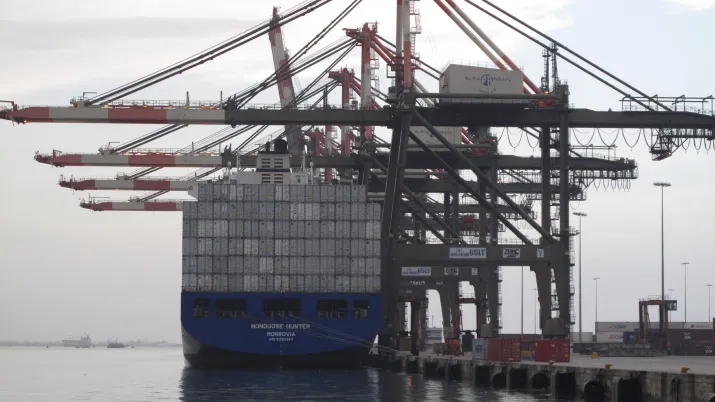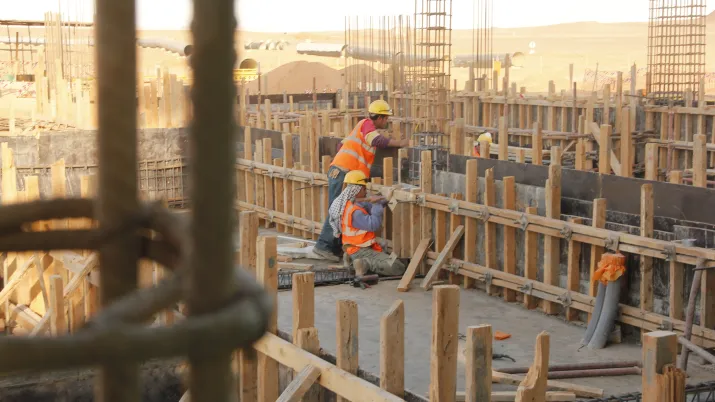Search results
HCOR
Hospital do Coração in São Paulo is one of the most modern hospitals in Latin America. It is reputed for the treatment of heart disease and is modernizing and developing, thereby improving the quality...
Project
I&P Développement 2
To promote “micro-investment capital” and create investment vehicles specialized in supporting microenterprises in Sub-Saharan Africa, Proparco is supporting the leading platform dedicated to their cr...
Project
IMON 2014
Imon International is the largest microfinance institution in Tajikistan and is recognized for its client protection. Its aim is to scale up its lending activities. It provides many other services – i...
Project
IMPROSA 2015
Banco Improsa, in Costa Rica, is particularly active in corporate financing. Its increased financing capacity will benefit agricultural SMEs and will help them develop and modernize their sector.
Project
INJARO
The Injaro investment fund invests in debt and equity to support West African SMEs in the agricultural sector, with a focus on allowing them to develop commercially profitable activities.
Project
JPS
Proparco is supporting the investment plan of Jamaica Public Service Company, Jamaica’s only electricity distributor. One of the program’s aims is to upgrade generation infrastructure and the transmis...
Project
KINGO ENERGY
Kingo has designed an innovative and well-suited prepaid solar energy service to provide rural communities in Guatemala with reliable and cheap access to electricity. Proparco is supporting the develo...
Project
Kingston container terminal
Proparco is contributing to optimizing the Kingston Container Terminal (Jamaica), which is managed by Kingston Freeport Terminal Limited. Once developed, the terminal will be a leading port facility i...
Project
KPE II
KPE II is an investment fund specialized in the education sector. It invests in South and Southeast Asia both in education facilities (from daycare centers to universities) and the related services.
Project
Krnovo
Krnovo Green Energy, a subsidiary of the French group Akuo Energy, which is specialized in renewable energies, is building a wind farm to supply 5% of the population of Montenegro and contribute to re...
Project
KTDA Power 2015
By financing seven small-scale hydropower plants, PROPARCO is supporting the energy supply of the factories of KTDA, Kenya’s main tea growers association. These facilities will provide access to energ...
Project
LAAD 2015
To support growth in Latin America, it is necessary to focus on financing SMEs in the agricultural sector. This is what LAAD, a financial institution established throughout the region, is doing.
Project
Lake Turkana 2013
Lake Turkana Wind Power is building a wind farm in northern Kenya with Proparco’s support. It will supply 20% of the country’s electricity, an energy 60% cheaper than the energy produced by thermal po...
Project
LEAPFROG LABS
By investing in insurance and micro-insurance companies, LeapFrog Financial Inclusion Fund is increasing the range of affordable insurance products for the poorest populations in Sub-Saharan Africa.
Project
LOME CONTAINER
LCT is building and will operate a container terminal in the Port of Lomé in Togo. The terminal is well located to serve secondary ports and will reduce the transit time for goods.
Project
MAGHREB LEASING ALGERIE
In Algeria, Proparco is supporting leasing finance solutions for material and equipment in a large number of economic sectors via a EUR 235,000 equity investment in the leasing company MAGHREB LEASING...
Project
MCGF 2016
By participating in the fund launched by Metier, Proparco aims to support the development of mid-caps able to meet the consumption demands of the middle classes in South Africa and Sub-Saharan Africa.
Project
MERIDIAM Africa 2015 2019
In Africa, infrastructure development is essential, especially in the energy, transport, housing and health sectors. The Meridiam Infrastructure Africa Fund is financing infrastructure construction an...
Project


















